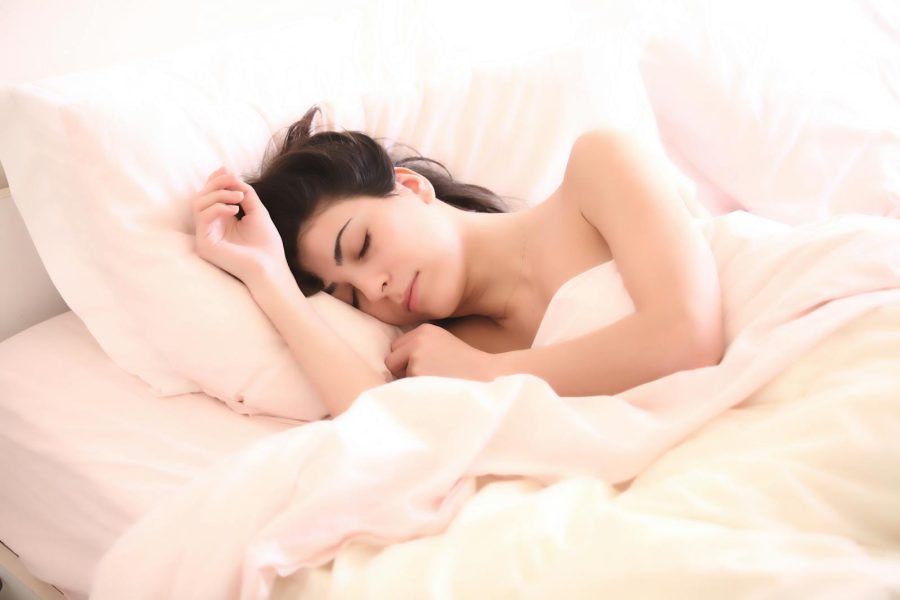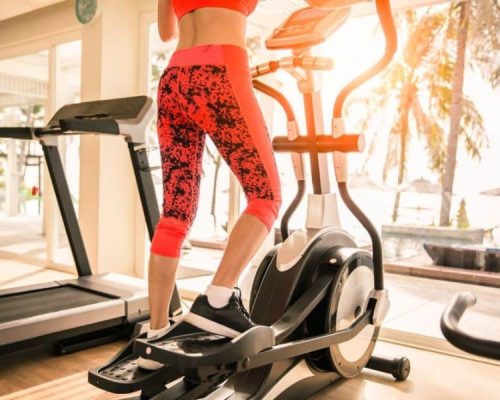Establishing a Bedtime Routine
Getting consistent shut-eye isn’t just about hitting the hay at the right time. It’s about setting the stage for your best sleep yet. A mishmash of handy tricks and must-try sleep habits can turn your nights from tossing and turning to dreamland wonders. Let’s dive into why pre-sleep habits matter, how jotting a to-do list can help, and what makes for a comfy, snooze-friendly room.
Importance of Pre-Bedtime Habits
The stuff you do before bed matters. These little habits tell your brain, “Hey, buddy, let’s chill and hit the brakes.” Whether you’re flipping through a mystery novel, finding your Zen with some meditation, or stretching out the day’s tension, these moves can help flip your switch from go-go-go to slow-mo.
| Pre-Bedtime Activity | What It Does |
|---|---|
| Reading | Gives your brain a break |
| Meditation | Kicks stress to the curb |
| Gentle Stretches | Tames those tension knots |
Writing a To-Do List for Better Sleep
Got a mind buzzing like a bee with a to-do list as long as your arm? Grab a pen. Sketching out tomorrow’s tasks can shoo away those pesky thoughts begging for your attention while you count sheep. It’s like giving your brain a chance to off-load and chill.
Here’s how to not overthink it:
- Jot down tomorrow’s must-dos.
- Tackle what’s urgent first.
- Keep it short — this ain’t time for a novel.
A nightly scribble session can sweeten your shut-eye routine, making the whole drift-off easier and breezier.
Creating a Relaxing Environment
Your bedroom should be a snooze-zone, pure and simple. A getaway from gadgets and all things that go beep in the night, setting the mood for some serious shuteye.
Try these tricks to make your sleep spot the ultimate dream destination:
- Ditch the screens: Phones, tablets, they’re blue light bullies! Give ’em the boot an hour before lights out.
- Cool and dark: Keep your place on the chill side, curtains snug closed, so your body knows it’s snooze time.
- Hush now: Throw in some earplugs or crank up a white noise playlist to drown out the din.
Lean into creating your sleep bubble, and you’ll be on the express train to dreamland in no time.
Committing to a bedtime ritual with these chill-out habits can transform your nights. Keep it regular, and soon your body will be playing PJ DJ, sending you from the nightly news to the land of nod in no time. Need more ideas for catching those Zzzs? Check out our handy-dandy sleep hygiene tips to up your sleep game.
Physical Activity for Improved Sleep
Getting your body moving can be a game-changer for a good night’s sleep, but don’t just take my word for it. Figuring out how exercise affects your snooze time and finding the best way to fit it into your day can help you rest easy like never before.
Impact of Exercise on Sleep Quality
Exercise is like the secret sauce for better sleep. It ups the ante on rest by boosting both how well and how long you sleep. The folks over at Johns Hopkins Medicine say exercise helps you knock out quicker and brings on the good stuff—slow-wave sleep, which is vital for recharging your brain and body. Meanwhile, Healthline points out that keeping active regularly can decrease sleep issues and ease insomnia.
| Exercise Benefit | Sleep Quality Impact |
|---|---|
| More slow-wave sleep | Refreshed brain and body |
| Quicker nodding off | Less time awake pondering life’s mysteries |
| Fewer sleep troubles | Soothing those sleepless nights |
Recommended Exercise Duration
You don’t have to spend hours sweating bullets to sleep better. Just 30 minutes of moderate movement a day can do wonders, even for the same night’s rest. Turns out, you don’t need to be a gym warrior to see the perks.
PubMed Central highlights that adults clocking in at least 30 minutes of exercise daily snooze about 15 minutes longer than couch potatoes. Plus, staying active can cut down on sleep issues like insomnia and sleep apnea.
Choosing the Right Type of Exercise
Picking the right workout isn’t just about bulking up or slimming down—it’s also about sleeping tight. Different workouts bring different sleep benefits:
- Aerobic Exercise: Activities like walking, jogging, or cycling pump up your heart and help you rest easier.
- Resistance Training: Building muscle with strength exercises can also crank up your zzz’s.
- Yoga and Stretching: Doing some gentle poses or stretches before bed can wind you down and prep you for slumber.
But watch the clock—avoid heavy workouts close to bedtime. They can leave you wired up (Healthline). Ending your exercise sesh a few hours before bed is your best bet.
Want to know more about exercises for stellar sleep? Don’t miss our piece on exercises for better sleep. In search of chill-out techniques? Consider our guide on ways to relax before bed.
By mixing regular workouts into your routine, fine-tuning how hard and when you exercise, and picking the right activities, you can catch better quality sleep and boost your overall health. For the full lowdown on sleeping well, browse our tips on better sleep habits and sleep hygiene tips.
Diet and Sleep Quality
What you eat matters just as much as when you sleep. Figuring out which foods to keep away from and how they mess with your sleep can mean the difference between a snooze fest and a restless night.
Foods to Avoid Before Bed
Some stuff we eat really throws a wrench in our sleep plans. Steering clear of these treats, especially when the day’s winding down, can make hitting the hay a whole lot easier.
- Alcohol: Sure, it might help you nod off, but good luck staying asleep. Alcohol messes with your sleep stages, leaving you tired when you wake up (Sleep Health Solutions).
- Caffeine: The pick-me-up that’s in your coffee, tea, and those fizzy drinks keeps you wired long past bedtime. Lingers in your system like that one party guest who won’t leave.
- High-fat Foods: That late-night burger might sound tempting, but it’ll stay with you, causing discomfort and sometimes a nasty bout of heartburn.
- Tyramine-rich Foods: Love a cheese board or red wine? These are packed with tyramine, which could turn your brain into an over-caffeinated chatterbox.
- Heavy Foods: Greasy and heavy meals are like asking for indigestion, keeping you tossing and turning.
Food Impact on Sleep Patterns
What you nibble on can throw your internal clock and hormones out of sync. Here’s how different stuff can throw off your zzz’s:
- High-sugar Foods: Sugar spikes and crashes can jolt you awake just when you’re drifting off.
- Spicy Foods: Taste great going in, but can come back to haunt you with heartburn when you’re trying to sleep.
- High-protein Meals: Essential for health, sure, but those midnight steak cravings might wake you more often.
| Food Type | Impact on Sleep |
|---|---|
| Alcohol | Unsteady and disturbed sleep |
| Caffeine | Tough to drop off, less refreshing sleep |
| High-fat Foods | Bellyaches, burn, and sleep disturbances |
| Tyramine-rich Foods | Brain buzz, tossing and turning |
| High-sugar Foods | Sugar rollercoaster, disrupted shut-eye |
| Spicy Foods | Fire in the belly, interrupted sleep |
| High-protein Meals | Stays alert instead of sleeping |
Recommendations for Nighttime Eating
Want to snooze better? Here’s the lowdown on nighttime munching:
- Opt for Light Snacks: Think yogurt, bananas, or a bit of cereal—hitting the sweet spot without hitting your gut too hard.
- Avoid Eating Large Meals: Wrap up dinner a few hours before bed to keep digestion from interrupting dreamland.
- Hydrate Wisely: Being hydrated is key, but chugging too much water near bedtime can mean more trips to the loo.
For more tips on improving how you sleep, check out our sleep hygiene tips and discover the perks of a good rest with our benefits of good sleep. Get your diet on track, and you might just sleep like a log and feel golden.
Natural Sleep Aids
If you’re tossing and turning all night, trying everything under the sun for a good snooze, consider giving natural sleep aids a whirl. We’re talking about gems like melatonin supplements, valerian root, and magnesium. They each bring their own magic touch to how you sleep.
Melatonin Supplements
Melatonin, your body’s little night owl buddy, tells your brain it’s time to hit the hay when it gets dark. Those bright city lights or your Netflix binge can mess with this process (Johns Hopkins Medicine). Melatonin supplements might be your ticket to nodding off faster. Throw a few of those 3–10 mg pills into your nightly routine and see more Z’s in your sleep bank. But hey, stick to a brand you trust since ingredients can vary quite a bit.
| Dosage (mg) | Sleep Gains |
|---|---|
| 3–10 mg | Hits your sleep sweet spot, quicker nod-offs, longer zzz’s |
Curious about more money-saving sleep tips? Peek at our better sleep habits guide for some bedtime hacks.
Valerian Root for Sleep Improvement
Another team player in the sleep league is valerian root. This plant packs a punch in doses of 300–600 mg for those tackling sleep troubles, especially folks like menopausal women or patients post-heart surgery (Healthline).
Valerian root whispers sweet lullabies to your mind, helping it chill out and unwind. Tea, tincture, or capsule — pick your poison to fit your style.
| Dosage (mg) | Dreamy Dozing Perks |
|---|---|
| 300–600 mg | Puts sleep woes to bed, eases sleep disorder stress |
Get the lowdown on Valerian root and our favorite natural sleep aids to dial up your snooze game.
Benefits of Magnesium for Better Sleep
Magnesium, the unsung hero of muscle relaxation and peace of mind, makes a solid addition to your sleep toolkit. Especially for the golden oldies, magnesium is like the sandman, prepping your body for dreamland (Healthline).
Science backs it: magnesium makes it easier to drift off and boosts snooze satisfaction. You can find it in nature’s pantry or supplement bottles.
| Nutrient | Sleep Boost |
|---|---|
| Magnesium | Muscle releaser, sleep vibe enhancer, dream starter |
Want to dig deeper into the blessings of awesome sleep? We’ve got the scoop on lifestyle tweaks for the ultimate shut-eye.
Mixing these natural sleep buddies into your routine might just transform how you sleep in the best way. Understanding the strengths of melatonin, valerian root, and magnesium is your first step to sleeping like a baby. Check out our articles on upping your sleep quality and sleep and mental health for more juicy tidbits.
Lifestyle Factors and Sleep
Grasping how your daily habits affect your shut-eye can make a world of difference in catching those Z’s.
Effects of Alcohol on Sleep
Alcohol might feel like a nightcap, helping you drift off quicker, but it actually messes with the kind of sleep that leaves you feeling refreshed. Sure, it might knock you out initially, but it’s a sleep thief in disguise, causing nighttime disturbances and leaving your sleep cycle in tatters (Comprehensive Sleep Care Center).
| Factors | Effects of Alcohol on Sleep |
|---|---|
| Initial Impact | Makes you sleepy |
| Sleep Cycle | Chops up your sleep |
| Restoration | Cuts down on refreshing sleep |
Craving more sleep wisdom? Check out our sleep hygiene tips.
Relationship Between Caffeine and Sleep
Caffeine is the pick-me-up we love in coffee and fizzy drinks, but it’s not your friend at bedtime. It lingers like an unwelcome guest, making it harder to doze off and break free from sleep interruptions. That energy boost sticks around thanks to caffeine’s long half-life, meaning it can still mess with your night well after that afternoon cup (Comprehensive Sleep Care Center).
| Beverage | Average Caffeine Content (mg) |
|---|---|
| Coffee (8 oz) | 95 |
| Black Tea (8 oz) | 47 |
| Soda (12 oz) | 34 |
Tip of the day: Avoid caffeine as the PM clock ticks. More on taming the sleep beast can be found in our guide on better sleep habits.
Establishing Consistent Sleep Schedules
Setting your sleep clock on repeat is key to better rest. A regular sleep schedule tunes your body’s rhythms, helping you slide into sleep and pop up in the morning without an alarm. Steady patterns can also help in combating insomnia or tossing and turning at night.
To nail down a solid sleep schedule, try these:
- Hit the hay and rise at the same time daily, weekends included.
- Develop a chill pre-sleep habit to nudge your body towards relaxation.
- Cut back on daytime naps to keep your sleep-wake balance.
For more savvy sleep scheduling, swing by our sleep hygiene tips.
Knowing how your lifestyle choices influence sleep lets you steer toward smart decisions. Skip that late-night wine and afternoon java, and lock in a sleep routine to maximize your benefit from good sleep.
Technology and Sleep Quality
Peering into your phone right before crashing might be messing up your shut-eye more than you think. Understanding how gizmos play into your nightly snooze can be a game-changer in snoozapalooza.
Blue Light Exposure Before Bed
Yup, that glowing screen acts like an espresso shot for your brain. The rays from your gadgets keep you engaged and awake, wreaking havoc on your body’s natural sleep signals and making it harder to conk out when the clock strikes bedtime. Dive into what happens when you bathe in blue light before bed:
- Throws Off Your Body Clock: Your internal clock gets thrown out of whack with light in the evening.
- Messes with Melatonin: Blue light cuts down on that sleepytime hormone, melatonin, making hitting the hay tough.
- Ramps Up Alertness: Your brain stays revved up instead of winding down.
Impact of Electronic Devices on Sleep
Scrolling through your phone or getting lost in that latest game before bed? Your gadgets aren’t doing any favors for your down time. Whether it’s checking notifications, giggling at memes, or just mindlessly scrolling, this can skyrocket your emotional responses that block those easy slide into sleep. Key impacts include:
- Keeps You Awake: All that interaction gets your brain buzzing instead of calming.
- Emotional Rollercoaster: All those tweets and status updates can spike stress or excitement, making you more wired.
- Sleep Cycle Sabotage: Alerts and buzzing put your sleep cycle on the spin cycle.
| Activity | Time Before Bed (Minutes) | Impact on Sleep |
|---|---|---|
| Social Media | 30 | Major |
| Emails | 60 | Moderate |
| Reading (eBook) | 60 | Moderate |
| Video Games | 120 | Major |
Setting Technology Boundaries Before Bed
Want to dial up some good Z’s? Locking down the rules on tech use before hitting the sheets is your lifeline. Cutting off lighted screens an hour or so before bedtime sets things in motion for better rest (National Sleep Foundation). Try these moves to keep gadgets from doing a number on your sleep:
- Set the Tech Timeout: Shut off screens at least an hour before lights out.
- Screen-Free Bedroom: Keep your gadgets out; your bed is for rest, not scrolling.
- Flip on Blue Light Filters: If you must peep your screen, make sure the blue light filter is on.
- Turn Off Unwanted Alerts: Silence non-essential notifications so your slumber isn’t disturbed.
- Swap Screens for Chill Time: Go analog before bed—grab a real book, or kick back with ways to relax before bed like meditating.
Following these habits can seriously up your night game and help you drift off into dreamland. Get more info on boosting those Zzzs with our full-on guide on improving sleep quality.










